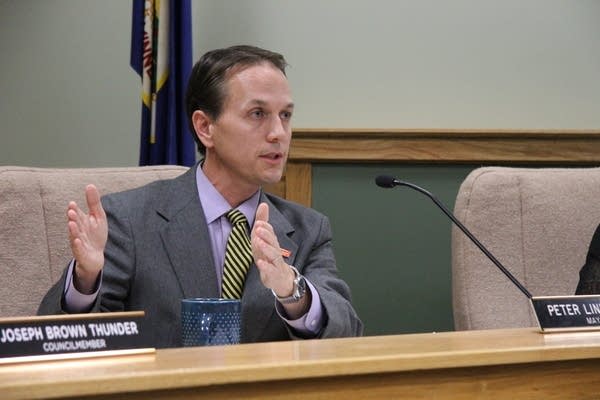Falcon Heights approves citizen groups to study body cameras, policing

Falcon Heights Mayor Peter Lindstrom talks about a proposal to form a task force to evaluate policing in the city where Philando Castile was shot by a St. Anthony police officer in July.
Riham Feshir | MPR News
Go Deeper.
Create an account or log in to save stories.
Like this?
Thanks for liking this story! We have added it to a list of your favorite stories.


